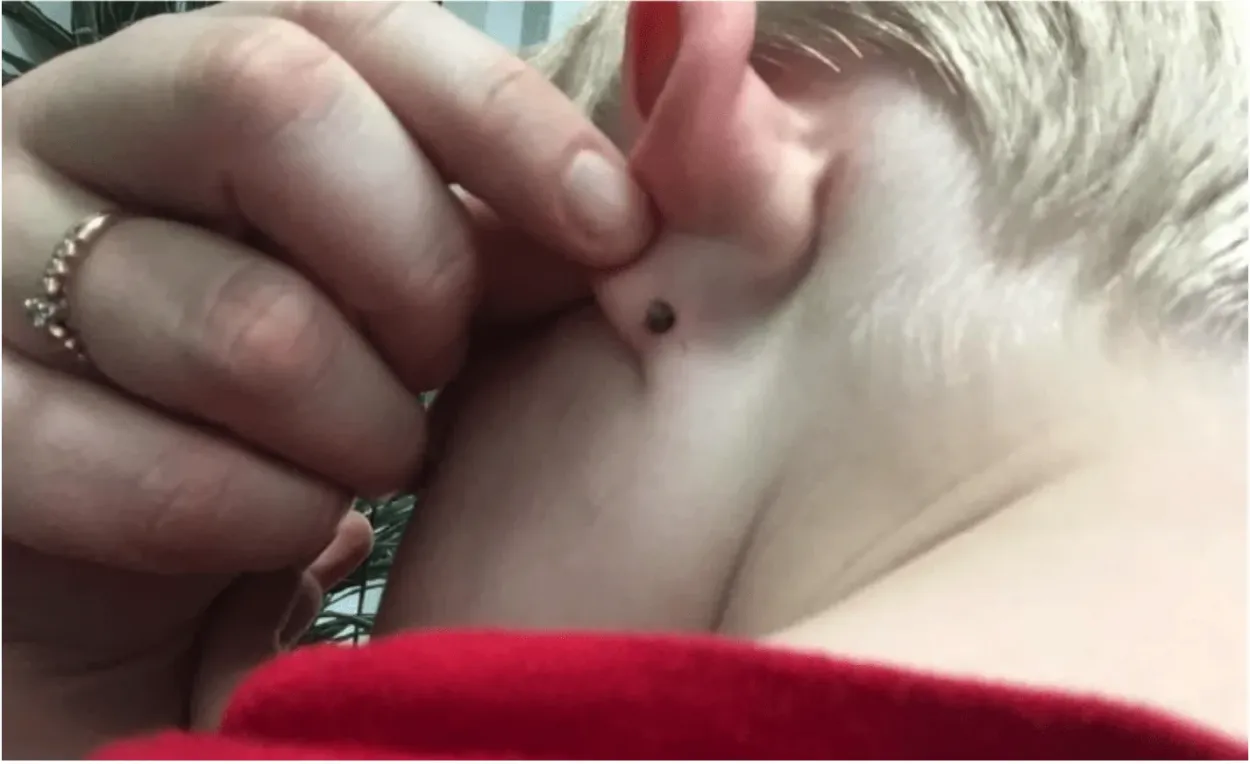Doctors and parents were astounded by what they discovered behind his ear when they took him to the emergency room

Ticks are generally harmless insects, but their parasites can be quite dangerous. In order to survive, they consume the blood of mammals, birds, reptiles, amphibians, and occasionally humans.
When Stephanie entered her child’s bedroom, she realized there was something wrong with him.
Colin, her son, is used to jumping around his room, but his behavior was unusual on this occasion.

Collin had just been playing in bed, staring up at Stephanie, so she quickly summoned her husband Dillon.
When Dillon and Stephanie brought their son to the emergency room, they were shocked to learn that Colin had become paralyzed overnight. They assumed the concussion was caused by him hitting his head before his brother’s baseball game.
Doctors said there were no signs of concussion because he could still communicate fairly well after the incident and was not experiencing any symptoms.
Collins’ condition quickly deteriorated, necessitating additional tests. Dillon was heartbroken to see Collin unable to move.
He was unable to eat or drink, so he was transferred to a larger hospital when his oxygen levels began to fall.
Stephanie and Dillon knew that every second counted for Collin, and he had the best equipment at his disposal.
Collin’s parents discovered after he was transferred that if they had arrived any later, their son could have suffered a cardiac arrest.
The source of the problem was eventually determined to be a small tick behind Collin’s ear.
His parents and the doctors had both missed it.
He quickly returned to normal after the tick was removed.

Despite the prevalence of tick bites, paralysis is a rare illness caused by insect saliva.
The medical professional described how the tick’s salivary glands contain a neurotoxic substance. This suggests that the neurotoxic was entering Collin’s bloodstream while the tick was feeding, causing paralysis.
Collin’s condition should teach parents to be cautious about their children’s health.




